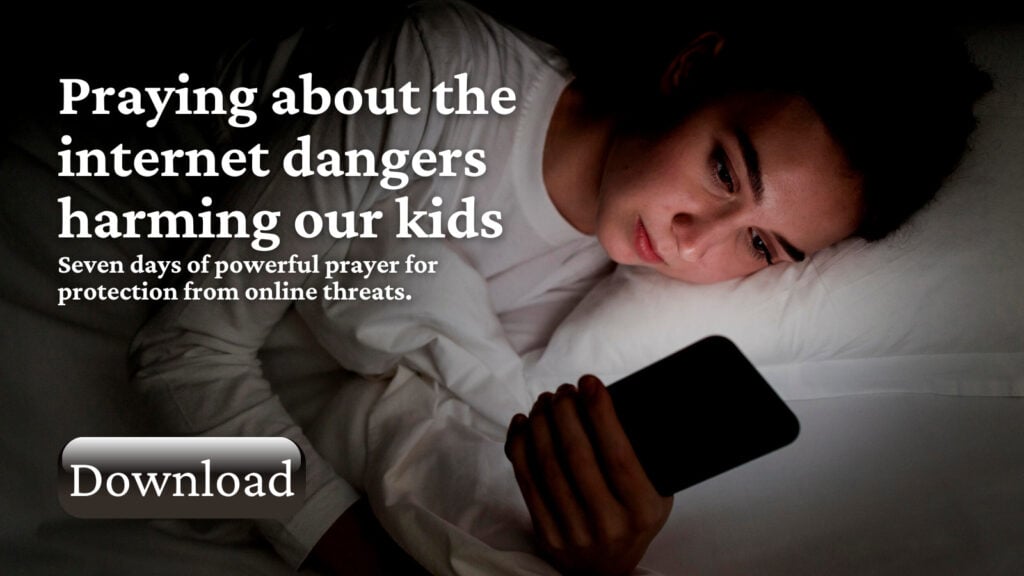Bans on Smartphones in the Classroom Gain Favor Across Political Spectrum
Bans on Smartphones in the Classroom Gain Favor Across Political Spectrum
Should smartphones be banned in classrooms? More and more lawmakers and leaders on both sides of the political aisle think so.
From The Daily Signal. The school year is over, and the results should leave parents and educators with more anxiety than relief. Achievement scores are near historical lows and student absenteeism is high. There is some bipartisan agreement, though, on classroom management that could help students begin to rebound in the fall: Prohibit smartphones in classrooms.
This content is supported by your donations.
Give today.
Earlier this year, Indiana Gov. Eric Holcomb, a Republican, adopted a proposal that prohibits students from using phones in class. Last week, the Los Angeles Unified School District school board voted to prohibit smartphones in classrooms.
California Gov. Gavin Newsom, a Democrat, has already signed a law that prompted policies such as the new provisions in LA and says he plans to do more on the issue while Democratic New York Gov. Kathy Hochul is also calling on lawmakers to ban phones in class. Florida enacted prohibitions last year.
Smartphones are an easy distraction, inevitably pulling attention away from anything happening around us. And research continues to find that smartphone use is not without consequences.
A longitudinal study (one that makes repeated observations over long periods of time) from the University of North Carolina found that when adolescents check their phones regularly for updates—text messages, social medial likes, or even just new posts to social media feeds—this behavior “changes how their brains respond to the world around them.” Specifically, the constant feedback they received made students hypersensitive to their peers’ responses, and while more research is needed, the sensitivity may contribute to compulsive social media activity in the future.
The growing consensus against smartphones in class is not the first time such policies on electronic devices have been proposed. Dating as far back as 1988, New York City banned mobile devices such as pagers to prevent drug dealers from communicating, though educators found this difficult to enforce. Smartphones are easier to detect than beepers, as students’ eyes are glued to the devices.
The U.S. Department of Education reports that in 2009-2010, 91% of public schools banned cellphones for nonacademic uses. This figure has fallen to 76% today.
Still, smartphones have some defenders in classrooms, and the critics of phone prohibitions are worth answering so that parents and educators can defend the policies despite the howls of protest sure to come from teenagers.
First, the phones are a distraction—and data demonstrate this fact: Children ages 8-12 spend some five hours per day on phones, and teenagers spend the equivalent of an entire workday on their phones. Research also finds that 42% of children have cellphones by age 10, 71% by age 12, and 91% by age 14. And with access comes significant usage.
Second, some argue that if students cannot use phones during the day, they will not be prepared for the “real world.” Yet just because students cannot use phones in a classroom does not mean they cannot use the devices before school, at lunch, and after school. In the “real world,” if your boss finds you on your phone for eight hours per day, you should not expect to be employed by that boss for much longer.
Third, educators say students may need phones to contact police or family in the event of an emergency, but state policies such as Indiana’s law accommodates for this. Teachers can easily pass around a basket to collect phones at the beginning of class, keeping the devices almost within arm’s reach if needed.
Still others say that some students, such as alternative education students (students who struggle in traditional schools, such as students who drop out of school and return later to finish) or older teenagers, have to care for younger siblings or coordinate their work schedules. For these reasons, state lawmakers should be careful with blanket policies banning smartphones and give school boards, teachers, and parents discretion to design policies that fit their institutions.
But the general accord around limiting smartphones is welcome. Educational games such as Kahoot! and resources such as online Spanish-to-English dictionaries are useful, but students will inevitably be tempted to check Snapchat in between assignments. Tools to quiz students and dictionaries existed well before the iPhone.
Families and educators need students’ full attentions while in class. Social media creates enough anxiety—let’s help students remember there is more to life than how many clicks your post receives. That is the most effective preparation for the real world.
What do you think of smartphone bans in classrooms? Share your thoughts in the comments below.
This article was originally published at The Daily Signal. Photo Credit: Marjan Grabowski on Unsplash.
Partner with Us
Intercessors for America is the trusted resource for millions of people across the United States committed to praying for our nation. If you have benefited from IFA's resources and community, please consider joining us as a monthly support partner. As a 501(c)3 organization, it's through your support that all this possible.


We use cookies to ensure that we give you the best experience on our website. If you continue to use this site we will assume that you are happy with it. Privacy Policy





Comments
No comments have been posted yet; you can be the first!